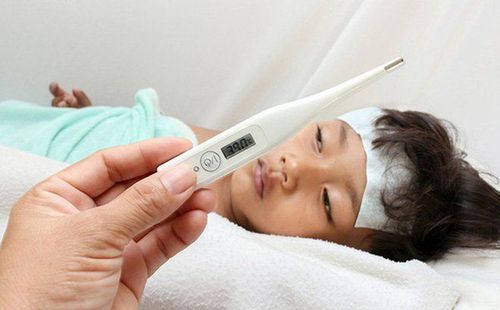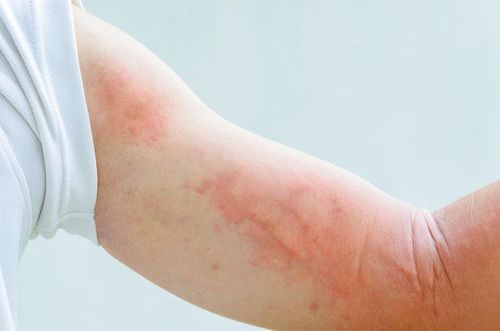Dengue fever is an infectious disease that can lead to many dangerous complications. In particular, dengue fever reinfection is often more severe than the first time, and can even be fatal.
1. Why can dengue fever be reinfected?
Dengue fever is caused by the dengue virus. There are 4 types of dengue virus: D1, D2, D3 and D4. Most cases of the disease are caused by dengue virus types D1 and D2, followed by D3 and D4. After contracting dengue fever, the patient will have lifelong immunity to the type of virus that was contracted but will not have cross-immunity to the remaining types of virus. Therefore, the patient can still be reinfected with dengue fever with other types of viruses. Each person can have dengue fever 4 times in their life, corresponding to the 4 types of dengue virus.
2. Dengue fever is often more severe than the first time
Dengue fever reinfection is very dangerous because the condition is often more severe than the first time. Patients may have more unusual developments and need to be closely monitored, especially in patients with chronic diseases such as diabetes, cardiovascular disease, liver and kidney disease... or pregnant women, young children, infants, and the elderly.
The reason why the second dengue fever is often more severe than the first is that the first time the patient gets the disease, the patient often gets dengue fever caused by the virus type D1. This is a classic type with mild clinical manifestations such as fatigue, headache, little bleeding, and a short duration of illness. After recovering from the disease, the patient will have lifelong antibodies to type D1. In the second dengue fever, the patient gets the disease caused by other serotypes. At that time, the patient's body has 2 types of antibodies in parallel. These two types of antibodies can conflict, causing a reaction that increases vascular bleeding, increases blood concentration, causing more severe manifestations such as dizziness, bleeding, and even heart failure.

Warning signs of dengue fever include:
- Fatigue, lethargy, body aches
- Restlessness
- Abdominal pain
- Nausea, vomiting
- Nosebleeds, bleeding gums
- Digestive bleeding: abdominal pain, bloody stools, vomiting blood
- Cerebral hemorrhage: coma, convulsions
- Tests show increased red blood cell volume compared to before, decreased platelets...
When you see signs of dengue fever reinfection, you need to go to the hospital immediately for examination to avoid serious consequences for the body.
3. What to do when dengue fever recurs?

The diagnosis of dengue fever recurs is based on clinical symptoms combined with test results and factors of dengue fever history. Because dengue fever recurs is very dangerous, patients need to pay special attention to:
- Follow the treatment regimen and instructions of the doctor
- Have a reasonable diet: drink plenty of water, eat lots of fruit, fruit juices, drink oresol to rehydrate, eat easily digestible foods...
In case you notice any unusual signs in your body, you need to notify your doctor immediately for timely treatment.
To arrange an appointment, please call HOTLINE or make your reservation directly HERE. You may also download the MyVinmec app to schedule appointments faster and manage your reservations more conveniently.








